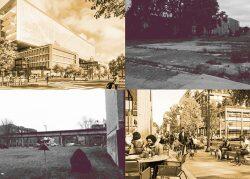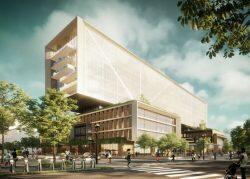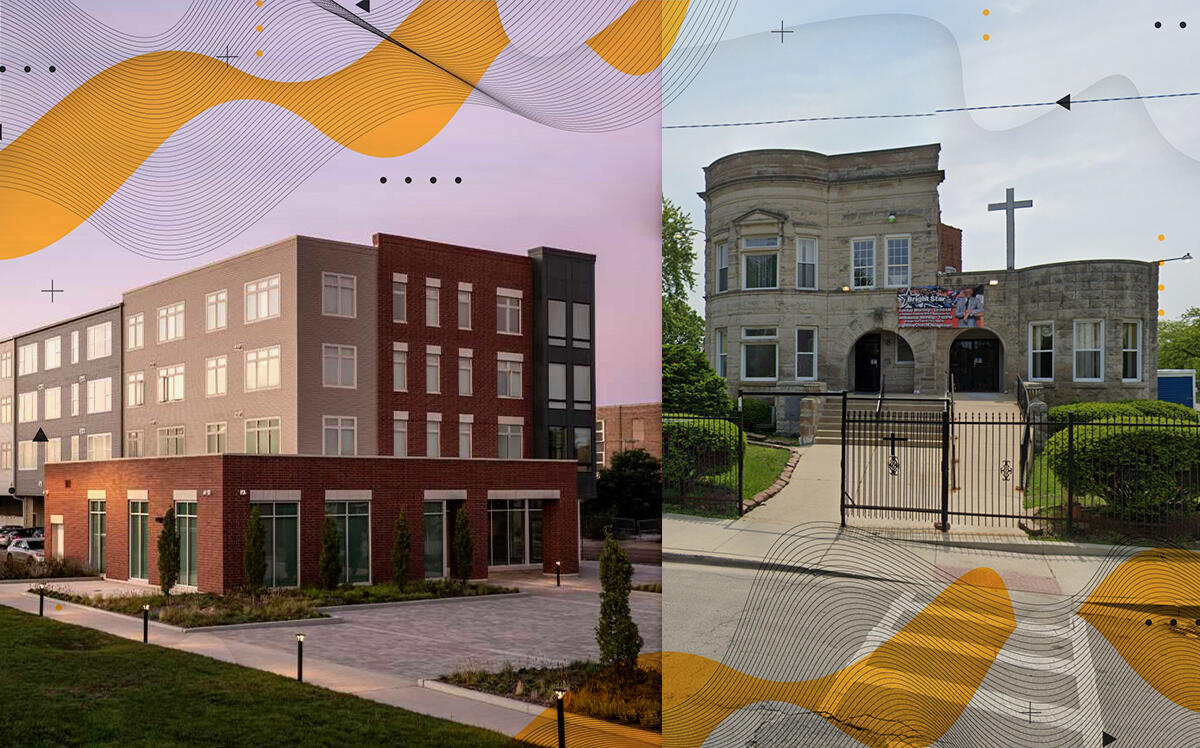Chicago’s Bronzeville neighborhood may be getting some more affordable housing near the site of the 4400 Grove development completed in 2020.
The Michaels Organization is teaming with suburban Northbrook-based Brinshore Development on a $38 million proposal to build 71 units across a complex of eight buildings between East 44th and 45th streets and South Cottage Grove and South Evans avenues, according to plans filed to Chicago officials.
It would be the latest instance of multifamily developers targeting the city’s neighborhood dubbed its “Black Metropolis,” where interest in real estate was fierce in 2021. Some of that was fueled by last year’s approval of the $3.8 billion Bronzeville Lakefront megaproject that will include 4,800 dwellings, hotels and a life sciences center planned across 100 acres with completion planned in 2041.
The median price of a home sold in Bronzeville last year through November hit $550,000, well above the $318,000 citywide average for the same period, according to The Real Deal, and more newly built homes, 28, sold in Bronzeville than in any other Chicago neighborhood in 2021. Developers have focused on the neighborhood, where vacant lots number in the thousands after a period of years with little investment activity in the area.
If approved, the new project would bring 51 units reserved for people making between 30 and 60 percent of the area median income, or $44,760 for a two-person household. The other 20 units would be priced at market rates.
The business partners have joined on housing development throughout Chicago that has brought 1,500 units to the city over the past 20 years, said Andrea Keeney, vice president of development at The Michaels Organization. That includes the 4400 Grove site that opened in 2020 adjacent to the recently proposed project.
The mixed-use development, on the site of the Chicago Housing Authority’s former Washington Park Homes demolished in 2002, brought 18,000 square feet of retail and commercial space fronting South Cottage Grove Avenue that is now fully leased by businesses such as a wine store, a salon and an aquarium store, Keeney said. It also included 84 apartments, 38 of them being restricted to people making 60% or less of the area median income, and 21 of them being public housing.
“At this point, we’re starting to have tenants move in and operate in those [commercial] spaces,” she said. “That was the emphasis of the first phase, to select local retailers to bring much-needed amenities to the community.”
She described the 71-unit proposal on the table now as the “second phase” of the 4400 Grove project, which cost about $38 million to build and will consist of entirely residential space. The estimated cost of the next phase is also $38 million so far, Keeney said.
It will replace the Bright Star Church building on the development site, and the religious organization will be given access to community space within the new development, Keeney said.
The developers have applied for tax credit financing from the Illinois Housing Development Authority to move the project forward, and will know in May whether it is selected for funding, Keeney said. She hopes construction on the project could start in 2023.
The unit mix consists of 24 one-bedrooms, 29 three-bedrooms, and 18 three-bedrooms, she said.
“There is a need for this type of housing, especially in the Bronzeville community. We think this mix is going to be really successful,” Keeney said.
Read more


